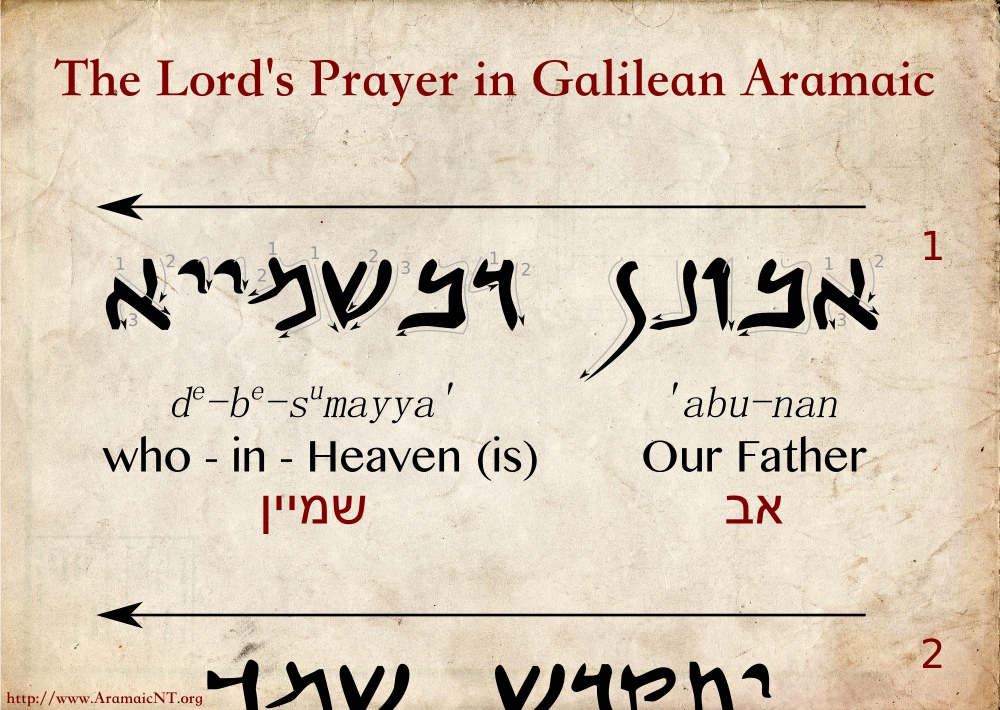UPDATE November 2012:
For those of you interested in the dialect of Aramaic that Jesus, himself, spoke I have just posted my reconstruction of The Lord's Prayer in Galilean Aramaic over on AramaicNT.org:
 |
| The Lord's Prayer in Galilean Aramaic on AramaicNT.org. |
=============================